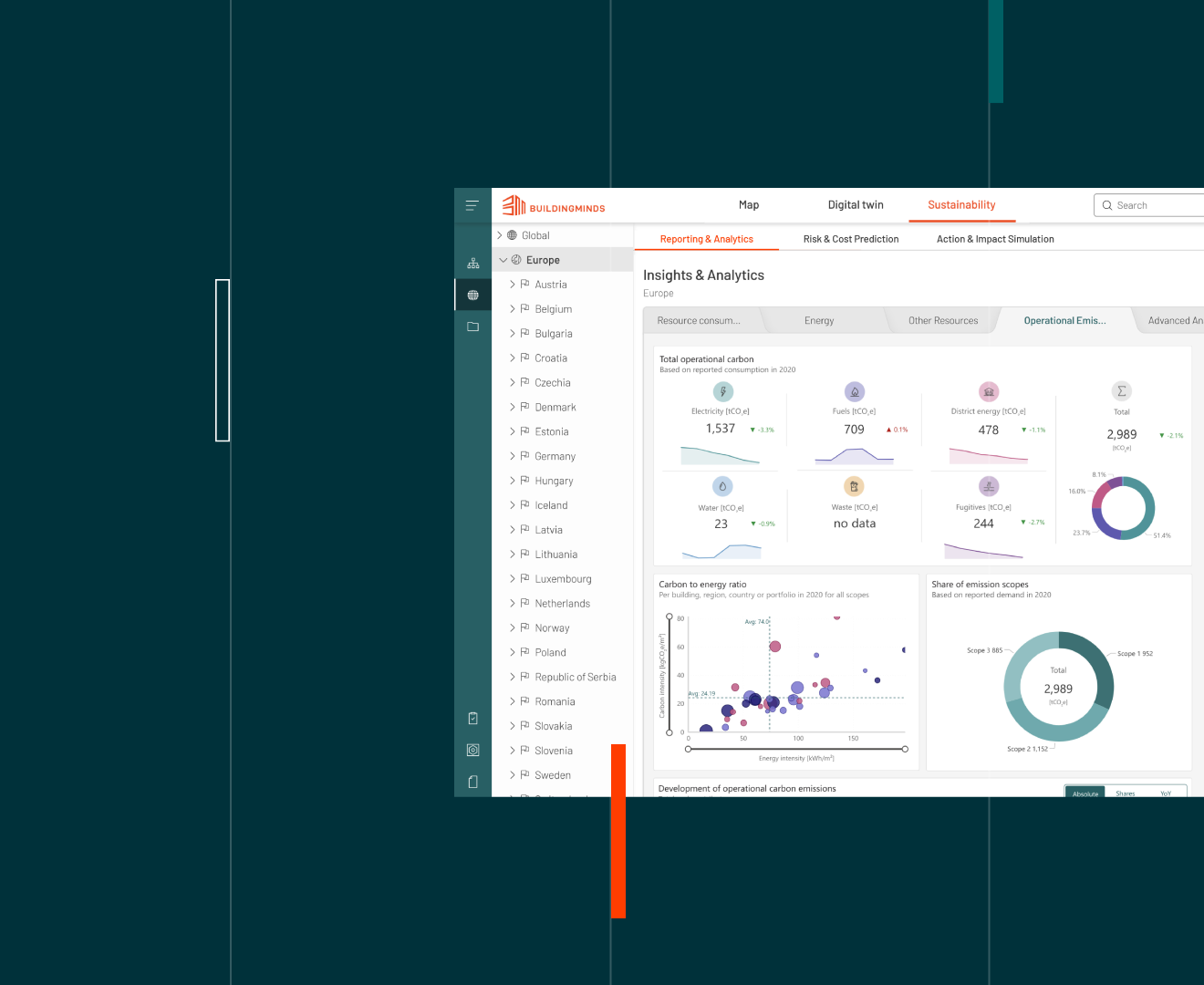A three-year adventure to make real estate a digital ecosystem – an interim conclusion

I can hardly believe it, but it’s already been three years since our company was officially launched on March 6th, 2019. At the time, when we embarked on our journey, developing a business model in real estate digitalization was still uncharted territory in the industry.
Back in 2018-19 proptechs were starting to stake a claim in real estate. The usual innovation centers like Silicon Valley or Asia were jumping on this opportunity, infusing new technologies and solutions. Like in other industries, the tech trend became more and more relevant and tech companies were growing fast. So, one would have understood whether we built a fancy, eye candy real estate app. But Schindler’s vision for BuildingMinds has always been a different one.
Bigger. More holistic. More adventurous.
The idea was to gather a team of visionary real estate digitalization evangelists at the heart of Berlin and build nothing less than a one stop service platform for holistic real estate portfolio management. And there wasn’t a single day that our founder and sole shareholder Schindler didn’t support us or stand firmly by our side.
The development was not a straight line, in fact it was quite an adventure. One must not forget: The real estate industry was and – unfortunately – still is one of the least digitalized industries in the world, probably just before fishing and hunting. So how could a data platform that aims to transform bricks and mortar into a digital ecosystem ever succeed?
In other industries like the automotive universe, for example, product cycles of 5 years speed up the development. In the real estate industry, the product cycle is 15, 30, 50 years and this makes the industry incredibly slow as the need to innovate wouldn’t be there yet.
Half by 2030, by 2050 all
This phrase asserted at the Intergovernmental Panel on Climate Change has changed almost everything. It is an open secret that the real estate industry bears a huge responsibility: Buildings account for around 38% of energy-related carbon dioxide emissions. And "the world is already built." At least 80% of today's buildings will still be in use in 2050, and about 75% of the world's building stock is currently energy inefficient. The pressure is rising to comply with regulatory requirements, avoid stranded assets and portfolio devaluation. Suddenly it is becoming crystal-clear that…
There is no alternative to large scale digitalization
Tapping into all static information and dynamic data isn’t only a necessary business priority, it also provides the framework for the integration of future technologies. Complex and dynamic calculation models need to be created, implemented, and monitored. The models will incorporate CO2 taxonomy, compliance, investment, retrofitting, valuation, rental/leasing conditions, transactions, material, technology, etc. All of these will have to be aligned with companies’ strategic and tactical goals. And one thing is clear: Excel is not an option.
“You need to go where the ball will go, not where it is in this very moment,” the saying goes. We never let go our ambition to create outstanding customer value with a SaaS solution that would enable a sustainable and data-driven future. This brings me back to the initial phase of our journey: We had understood quite early on that the most trivial sounding yet severe issue of the industry was data locked in siloes.
The most valuable data point is worthless
…if you cannot put it into context, ideally at the push of a button. Take this simple example: Knowing the emissions of one of your buildings only makes sense if you combine it with e.g. the location of the building, current and projected CO2 price, the context of an entire portfolio, and finally their reduction through retrofits. The secret sauce is a Common Data Model for Real Estate which we’ve already gotten to know from other industries. Together with RICS and Microsoft, we’ve founded IBPDI, the International Building Performance and Data Initiative (IBPDI). The program has over 50 members so far and it marks a major milestone in finally creating actionable insights for sustainable real estate management.
Culture eats strategy for breakfast
Without such an amazing team we wouldn’t have been able to build such a product we have now. We’ve organically grown into a team of about 100 people blending a colorful mix of more than 30 nationalities and a wide variety of professional backgrounds. We’ve sourced our employees from startups, agencies, and specialized domains; some were freelancers, others were in corporate management. It is our diversity that allows us to draw from a wealth of perspectives and experiences, and I am incredibly grateful to be part of this team. We can only manage this giant task if we partner up and embark on this journey together. I’d like to take this opportunity to thank the BuildingMinds team, Schindler and all our partners for their incredible support!
Let’s keep on revolutionizing the industry together and reach sustainability in both senses of the word – meeting environmental requirements while maintaining and building resilient businesses.
Sincerely,
Jens Mueller



